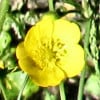Is American-English spelling used more than UK-English spelling?
- Baileybearposted 15 years ago
0
I raise this question after reading an informative hub on keyword searches. I asked the writer if she uses American spelling if gets more hits, even though from UK and she said yes, as well as using American terms.
Will the English language ever be standardised? (swap the s for a z). Sulfur (american) was adopted formally by IUPAC many years ago, but sulphur still gets used a lot. I prefer some american spellings eg celiac over coeliac. But America hasn't adopted SI measurement units? (litre, kilogram etc).
And same object can be called different things in diff countries eg flip-flops (UK) = jandals (NZ) = thong (Aust)
Might provide some inspiration for hubs. I would be most interested in reading any hubs on these themes if anyone has already written or wants to writeI think more hub traffic comes from the US than from the other countries combined (which tend to use UK spelling).
I use American English when publishing articles.
Global Monthly Search Volume for each exact term:
[sulfur] 110,000
[sulphur] 40,500
[celiac] 49,500
[coeliac] 18,100
That can get a bit trickier, it will depend on the audience you're targeting.
Different names for the same object can also mean completely different things in some countries, eg: fannyI used to really get annoyed with American English, because I'm from the UK. Since I'd already learned English once, I didn't see why I had to learn it again. I resisted American spelling and usage for years, even while I was teaching college English in the States; however, I soon began to forget which spelling of a word was which; and then, more years later, English spelling began to look strange (tyre? isn't that an ancient city in Greece?). Now, 26 years later, I see the logic of American, mostly, and use it even when writing to my mother (shocking, I know).
Now I'm dispensing with the whole problem in two ways: one, recently having started experiencing dysgraphia, I often find it's a moot point whether I'm using English or American: for example, I wont' coretc the nest few words and show your what my tyypong and eriting is mostly liemk.
Arhg! couldn't do it--had to correct "the" before I cauth myself.
Secondly: I'm going to teach myself LOLcat langwage.
Srsly.
I can't help but use the English we were taught at school. I like our illogical spellings, but I can see why the younger generation find them a pain. My 15 year old is constantly texting me, and I've had to learn to translate the textspeak and the gangsta rap words she uses, such as 'Dat is bangin man, d'you get me?' !! LOL!!That is awful teri... will it get worse as you age? I mean will it get to the point where you have no idea about grammer, spelling and structure?
or do you think you can keep it in check?
I am truly interested and this is not to make fun of you. As bad as you think I am... I would not do that. Nor would I make fun of your asain friend who wanted your mouth to feel peace and calm for a few minutes.
Are you worried one day you may not be able to place your thought to any type of written record?Teresa McGurk: your general knowledge is dismal for a college English teacher. Tyre was not a city in Greece: it was an ancient Phoenician city on the Mediterranean coast of the Levant and still exists as the fourth largest city in modern Lebanon. Learn it and get it right.
I am Australian, but almost all of my writing across the web is American English. Mostly as I know the large majority of my readers will be US based. The feedback I have been able to find out about the largest audience I have has been predominantly American, then Australian, then readers from the UK and then the rest of the world.
When I stared this shin dig, I was annoyed at my spell checkers constantly nagging me, now I know that the net is a 'smaller global' audience, so almost all folks don't mind and expect either type of spelling with what they read.I understand why someone would use American-English spelling for words... but I really enjoy reading the words in UK-English. They seem to give things a different polish. I feel I can hear the accent when I read.
I once tried to use UK-English in my 9th grade Language Arts class. I was writing about my favorite season and felt that colour would read more poetically than color (Insert nasal mid-west twang). My teacher didn't feel the same and my grade was docked!UK-English spelling is used in New Zealand and Australia too - but there are different accents and slang for each.
- ryankettposted 15 years ago
0
American-English is not only the most widely used in a global context, but it is also the fastest growing.
And the reason is that most textbooks/schoolbooks sold in places like China are written in American-English.
People will learn what they are taught. I don't really think about it so I probably use UK-English. But what really annoys me is when I buy a computer in the UK and the wordprocessor's spellchecker, which uses American, keeps telling me I'm making mistakes when I'm not. You can change the language setting to French, Spanish etc etc etc, but not to English English.
Which program are you using? MSWork has a really good set of English dialect spellcheckers.
I can tell you having been to London and around the lil isle you all have. I felt as though they spoke a different language altogether.
I don't know how many times I said... "What?", "What the hell did you say?"
It got quite repetative.Gee, I wonder why American tourists suffer from such negative stereotyping....
Yes the evil Americans... who saved englands ass in WWII and are the only reason there is still an England.
All I talked about was the stereotyping (note "stereotyping") of American tourists (note "tourists"). Don't put words in my mouth.
Yes it really was a pathetic attempt by the English during the Battle of Britain shooting down those Nazi's and they were so pathetic to only get a kill to death ratio of +2 despite banging the planes together with whatever they could the morning before. Thank God for you definetely the only reason England is still on Maps, definetely thank you so much you really helped, well i say helped i mean join a few years later and claim you were deeply involved despite England being in the warzone and usa being, well a tiny bit further away, good job despite the much lower population we had thousands more casualties, all thanks to you, thank YOU for your work, oh and i suppose you don't know why there is a NEW before New York do you, perhaps that's because some people decided to wander over to america and discover it, then name it a place after there home town, YORK, perhaps then they decided to live there perhaps, maybe in NEW England, or some French in NEW Orleans, perhaps why maybe perhaps they thought about perhaps maybe helping there mother country by pushing a red button other the Japanese, oh no i heard in England they speak English, and their socialists lets nuke the evil commies, they wouldn't exist without you. Despite Creating You.
ArrogantWait, what? The British discovered the Americas. Well I'll be darned.
Just cause someone has trouble understanding an accent?
I experienced the stereotype not as a Brit, but a Kiwi visiting the UK. I don't know to what extent it is fair or unfair. but I did see an American tourist aggressively accuse a museum for hanging the Van Dyke painting (A Lady of the Spencer family) just to suck up to the royal family (that being Lady Di's family). It was quite funny to see the gudie respond in a shocked voice: 'but sir, it's a Van Dyke--it's the only one we have!) I also saw American tourists deliberatley mislead local people unto thinking the were Canadian because it made their trips easier.
I suppose if a Brit went to America and went around saying "What?", "What the hell did you say?" all the time you'd find them to be quite arrogant and ignorant, no?
In Australia jail has been more popular for newspaper heading for the last 60 years that gaol. It makes sense that American spelling has proved more popular. It is generally more phonetic and being more phonetic it is seen as being more honest and straightforward.
Charles Dickens, the famous British novelist, occasionally preferred American spelling for the reasons I have stated.
Generally speaking the British version of English has over many centuries been ruined by the French language and mode of spelling. First it was Norman French and then there were other periods when the French language and its idiosyncrasies unfortunately made further inroads into English and therefore the British style spelling of English. The silent letters you find in English words are often the result of this dastardly French influence. British style English has also been ruined by snobbery. The main thing wrong with American style English spelling is that it doesn't go far enough in cleaning up the mess.
In Australia we have our own dictionary, the Macquarie. In it you will find both British style English spelling and also American style English spelling. You will also find words unique to Australia.I use a mixture, on sites where I am selling American products it makes sense to use American English, on sites where I get more English traffic I use English spellings.
I would not compromise... colour is always colour to me
But that takes so much more time to type than just color!!!!
Think about it, if you added up all the milliseconds you spent putting in that "u" over the years you could have spent an extra 3 minutes doing something else. Such a waste!To me they have two different meanings. Color is red, white, blue, etc. Colour is multi-dimensional and seems to include fragrance, surroundings, etc. (not literally, of course). I would say " this is the color red" and I would say " the place had local colour".
During summer vacation after my first year of college, my friend and I decided to go to Europe. I noticed how some things had different names in London vs at home. So for example, an elevator at home is a lift in London. So, I think we were either at a Selfridge's or Marks and Spencer or something and we were headed for the escalator. A girl was trying to spray us with perfume and I said something like Oh, I noticed that you have different words for things here. What do you call an escalator? She looked at me as if I had two heads and said in the most English deadpan voice, "We call them es-ca-la-Turs." I'm way past college already but I always laugh when something causes me to remember it. But it's funny how the same thing in the same language can have different words.
Oh and a lift in the US is a ride in the car.Yup definitely, especially because everyone is taught in the american-english way and also microsoft's entire suite is defaulted to american-english spelling.
A Hubber friend of mine changed all her Hubs from British spelling to American, and reports that traffic improved. Well, I suppose US spelling is more international than British.
The differences between British and American spelling are trivial. These trifling differences only affect a handful of words in a language that contains more than one million words. Anyone who is hung up on the differences in spelling between the two major dialects of English have far too much time on their hands. In fact, I don't really know why I've even bothered to write this post.
We analyze innuendo in language because we are writers, we love words. For example, take the word snob. Well, just take it and stick it on your forehead.
If you look at the bigger picture of language evolution over time, it is more than likely that Americanized English will prevail over traditional British English. It is also likely that it will prevail over French, German, Italian, Swedish, etc., in the long run. The globe loses more than a few languages or dialects each year. As we become ever more global (or even interplanetary), we will evolve (or devolve) to one dominant language, one dominant currency, and one dominant culture. Every other non-dominant language, currency or culture will exist only so long as it is preserved as an archaic memento of our collective past.
As this is an American site, I expect American English to prevail.
However, I use English English ~ because I am English. However, I may add the US alternative as well.
Interestingly, my kids use a lot of Americanisms. They don't even seem aware that they are doing so and my husband and I often have to tell them that they are using incorrect grammar / vocabulary for England.
I understand that a lot of American English is actually English usage from the past. The English proto-Americans took it with them.
Related Discussions
- 28
Do you write your hubs in British English or American English?
by Ness 13 years ago
Do you write your hubs in British English or American English?Being from Australia, generally I only write in the British English way, but do other hubbers who were taught in the British English way ever change their spelling to the American English way? Since most of my traffic comes from...
- 15
In your opinion, which dialects or variety of English should be used by an onlin
by Tina Dubinsky 12 years ago
In your opinion, which dialects or variety of English should be used by an online writer?This question doesn't directly relate just to Hubpages, but to any blog or website where the target audience is a mix of nationalities from different countries? Should it be English (UK), English...
- 33
Which English Language and or dialect do you speak?
by Arthur Russ 6 years ago
Which English Language and or dialect do you speak, and is it Your Native Tongue? I often have difficulties in fully understanding Americans during ‘in-depth’ correspondence on topical subjects because we speak two different languages e.g. American English and British English. Prima facie the...
- 9
What words do we use in the United States that are spelled differently from word
by Corey 12 years ago
What words do we use in the United States that are spelled differently from words used in the UK?Besides spelling differences, are there words that we use differently or have a different context compared to words here in the States?
- 39
Why are people using more and more confusing and ambiguous words nowadays?
by Venkatachari M 8 years ago
Why are people using more and more confusing and ambiguous words nowadays?I am seeing this trend nowadays very frequently that words get used which can refer to two or more meanings thereby creating confusion among readers.For example, "Tire" instead of Tyre". Tire refers to getting...
- 13
British English and American English, which is more appropriate?
by Frank Anok 16 years ago
British English and American English, which is more appropriate? For instance, an Englishman spells metre as "metre" while an American spells it as "meter".And often my pc's spell check marks it incorrect when i spell it as "metre",is this right? Please i want to know...























